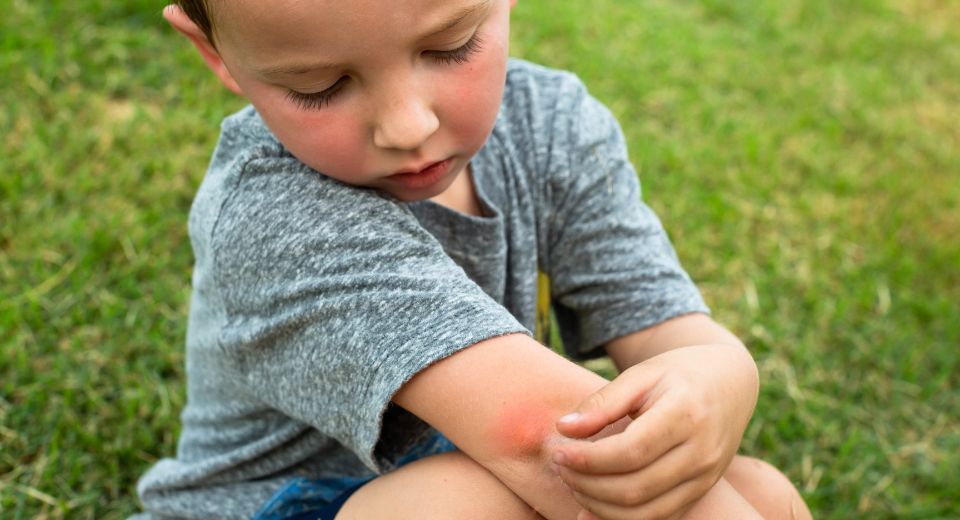
Author: Monique Herb, Regional Manager
Whether you’re in the water, on a mountain trail, or in your backyard, wildlife you encounter have ways of protecting themselves and their territory. Insects, such as bees, ants, fleas, flies, mosquitoes, wasps, and spiders, may bite or sting if you get close. Most won’t bother you if you don’t bother them, but knowing what to look for is key.
The initial contact of a bite may be painful. It’s often followed by an allergic reaction to venom deposited into your skin through the insect’s mouth or stinger. Most bites and stings trigger nothing more than minor discomfort, but some encounters can be deadly, especially if you have severe allergies to the insect venom. Prevention is the best medicine, so knowing how to recognize and avoid biting and stinging animals or insects is the best way to stay safe.
The animals you should recognize and understand depend very much on where you live or where you’re visiting. Different regions of the United States are home to many of these creatures. The season also matters. For example, mosquitoes, stinging bees, and wasps tend to come out in full force during the summer. Many bugs bite, but only a few do so intentionally. Most bites are relatively harmless, leaving just an itchy patch of skin behind. But some bites can carry disease. Deer ticks, for example, typically carry Lyme disease.
The venom injected into your body from the bite or sting of an insect will cause your immune system to respond. Often, your body’s immediate response will include redness and swelling at the site of the bite or sting. Minor delayed reactions include itching and soreness.
If you’re very sensitive to an insect’s venom, bites and stings can cause a potentially fatal condition called anaphylactic shock. This can cause the throat to tighten and make breathing difficult or cause low blood pressure. Some bites and stings may cause illnesses when venom contains infectious agents.
Most insect bites and stings are mild and can be treated at home. Most cause itching, swelling, and stinging that can go away in a day or two.
For mild reactions:
– In case of stings, remove stinger before washing affected area
– Gently wash the area with soap and water
– Apply a dampened cloth with cold water or fill with ice and apply to the bite or sting for 15-20 minutes to reduce swelling and pain
– Apply calamine lotion, baking soda paste, or a 0.5% or 1% hydrocortisone cream. Do this several times a day until your symptoms fade.
– Take an anti0itch medicine (antihistamine) by mouth to reduce itching.
When to seek emergency care:
– Call 9-1-1 if a child or adult is stung by a scorpion or if anyone is having a serios reaction that suggest anaphylaxis, even if it’s just one or two of the following symptoms:
1. Trouble breathing
2. Hives
3. Nausea, vomiting, or diarrhea
4. Swelling of lips, face, eyelids, or throat
5. Dizziness, fainting, or unconsciousness
6. A weak or rapid heart rate
If you are have a bug bite or sting and you are unsure what it may be from, schedule an appointment with your doctor or come to your nearest urgent care clinic for it to be checked out.
The information provided is for general interest only and should not be misconstrued as a diagnosis, prognosis or treatment recommendation. This information does not in any way constitute the practice of medicine, or any other health care profession. Readers are directed to consult their health care provider regarding their specific health situation. Marque Medical is not liable for any action taken by a reader based upon this information.

